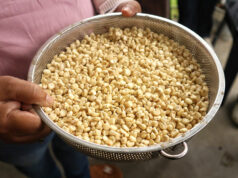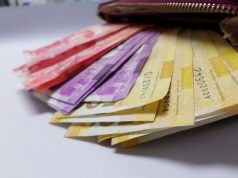DBP to issue P5 billion in sustainability bonds for environmental, social projects
STATE-OWNED Development Bank of the Philippines (DBP) is set to issue P5 billion in sustainability bonds, marking the first tranche of its P50-billion program, proceeds of which will finance eligible environmental and social projects.
The P5 billion bonds will have a tenor of two years and an initial price guidance of 4.25% per annum to be paid quarterly, DBP said in a statement yesterday.
The bank said it is eyeing to determine the final pricing of the two-year debt papers on Oct. 18, with the offer period for the bonds running from Oct. 21 to Oct. 30. The bonds will be issued and listed on Nov. 11.
“The DBP Sustainability bonds issuance affirms our commitment to continue supporting initiative that have an impact not only on communities but also on our environment,” DBP President and CEO Emmanuel G. Herbosa said during the bank’s institutional investors’ briefing on Monday in Makati City.
The bank will sell the bonds for a minimum investment of P50,000 and in integral multiples of P10,000 thereafter, with no maximum amount but must not exceed the approved issue size.
The three-year P50-billion bond program is the bank’s first sustainability bond offering, which will be under its Sustainability Finance Framework, as approved by the Bangko Sentral ng Pilipinas and the Securities and Exchange Commission.
Jose Gabino de Leon Dimayuga, DBP executive vice president, said they can adjust the volume of their P5-billion offer.
Mr. Dimayuga said the bank opted to issue bonds in a shorter tenor as it serves as a “sweet spot” for investors, as well as to attract investors looking to save.
“The idea there is if we can raise more than the P5 billion, we will certainly accept anything over above that. We are also looking at just raising the amount based on what we need as of the moment. We hope that shorter tenor to be able to actually entice savings also,” Mr. Dimayuga said.
Asked on the bank’s funding strategy for the medium term, Mr. Dimayuga said they are looking at other sources of financing such as the official develop assistance (ODA) loans or grants.
“We do look at deposits, we look at long term funding from ODAs, then commercial funding through capital markets or even through interbank lending, to fill the gap in our medium-term funding,” he explained.
Francis Nicolas M. Chua, DBP’s first vice president and head of corporate finance group, said the bank will disclose where the funds will go since they are required to do so every year.
“Part ng sustainability bonds will be we have to make sure that the proceeds will be used for the projects. We have to also identify that we have projects in the pipeline so that we can allocate the funds and also if we have previous projects that need financing,” Mr. Chua said.
He said local investors’ appetite for sustainability bonds is still “evolving” compared to markets offshore, but they are “receptive” to such offerings.
However, he expects the local market to be more accommodating following their issuance of sustainability bonds.
“But we’re hoping that the more we come up with these kinds of bonds, the more the market…gets informed about it and can make informed decisions. Right now, there’s no difference in pricing, so it’s really a preference of investors,” he explained.
The structuring advisor and issuer manager of the transaction will be the Standard Chartered Bank, and will also work with China Bank Capital Corp. as joint lead arrangers.
The bank added that it targets to have P1 trillion in assets by 2022.
DBP’s first-half earnings grew 12.3% year-on-year to P3.1 billion, boosted by lending growth. — B.M. Laforga



